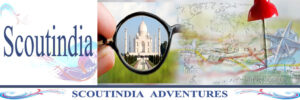
Rajasthan abounds in forts which offer sweeping views of the panoramic landscape. Three most essential forts in Rajasthan are the Amber Fort in Jaipur, Mehrangarh Fort in Jodhpur and Jaisalmer Fort, commonly known as Sonar Quila.
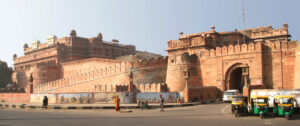
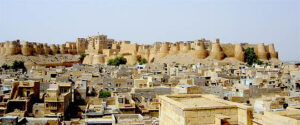
Rajasthan is the homeland for many exciting and rapturous Fairs and Festivals that are held every year. 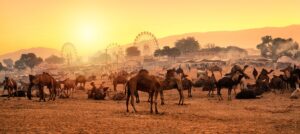 Pushkar Fair, which takes place in October-November, is a weeklong camel and livestock festival. It takes place in Pushkar and is known to be the world’s largest camel fairs.
Pushkar Fair, which takes place in October-November, is a weeklong camel and livestock festival. It takes place in Pushkar and is known to be the world’s largest camel fairs.
Udaipur World Music Festival brings together global artists and is held in February.
If you are a music lover, then you should not miss this experience. 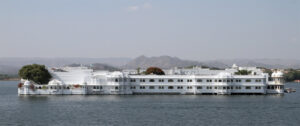
For literature buffs, Jaipur Literature Festival held annually in January is a perfect event. Celebrated writers interact and share their ideas with common people. In the month of January-February.
You can witness the rich Rajasthani folk culture in the famous Desert Festival held in Jaisalmer every year. Camel races, folk dances, traditional processions form an important part of make this festival one of its kind.
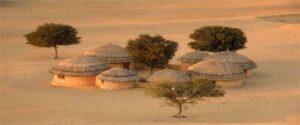
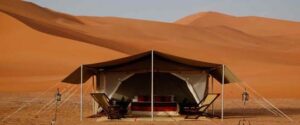
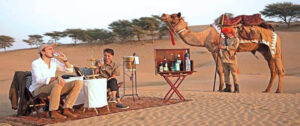
Camping in Jaisalmer or Pushkar can turn out to be a lifetime experience. They are a perfect blend of comfort and adventure. While camping, you can absorb the beauty of widespread deserts. Desert and Camel Safaris in Bikaner, Jaisalmer or Jodhpur will leave you bewitched.
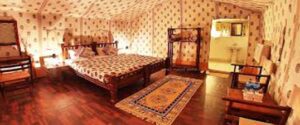
Along with camping, you can witness cheerful men and women performing some remarkable folk dances.
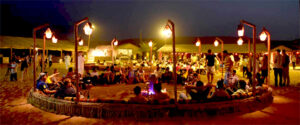
An age-old way of travelling and time pass for the Maharajas, the kings, princes and nobles, it was practiced in India for centuries and is now revived for visitors and horse-lovers.
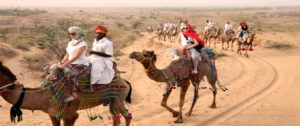
Let us take you into a whole new world, vibrant and extraordinary. Encounter with us the colors of Rajasthan in this most unique and time-honored way.
India has always stimulated the very senses of the adventure traveler, with visitors to the country eager to explore and understand many facets of this diverse and complex subcontinent. Horse safaris, that take you off the beaten track to the interiors of a region, are assuredly one of the best ways to get an intimate experience of the land and its people.

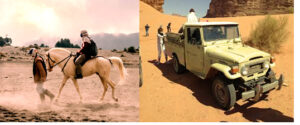
All our horse safari tours are well planned with emphasis on the smallest of details. Good reliable horses with comfortable saddles are used for our horse safaris, which take you to the interiors of Rural Rajasthan and to the jungles at the Himalayan foothills.
The horse safaris organized by us passes through terrain comprising of desert, hills, open fields, dunes, forests, interesting villages, hamlets and you stay at old princely heritage fort and palaces or in royal tents.
The days of the ride vary from 3 to 12, depending on the time you wish to spend in the saddle. A distance of about 25-30 kms is covered in a day with hot lunches served enroute.


The horses used on our safaris are mostly Marwari with a few Kathiawari and Sindhi horses.
The Indigenous horses vary in height from 14.2 to 15.2 hands. They are lean but very fit horses which makes them most suitable for desert safaris.

The exotic beauty and vigor of the Marwari horse is their lasting heritage. Marwari was bred to lift the heart in battle and please the eye.
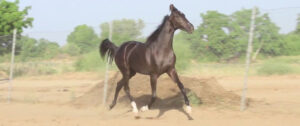
He is easily recognized by his proud carriage, upright graceful neck and distinctive aquiline head with deep expressive eyes, The crowning glory of which are the unique lyre or scimitar shaped ears set high on the poll and without exception unique to the noble Indian horse.
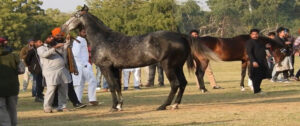
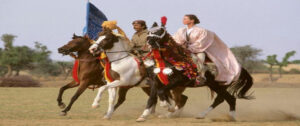
The intelligence and natural regal bearing of the Marwari is blended with tremendous equipoise, graceful animated gaits and stamina. He displays an alert stillness when in repose and incredible élan vital in action. Hardiness and longevity have enabled the breed to survive wars, famine and droughts. The Marwari agreeably adapts to different life styles and environmental conditions and performs in various sports and formal riding disciplines.
Loyal, tireless and competitive, the Marwari has evolved from one of the world ancient breeds to present a new archetype of beauty, brilliance and personality.
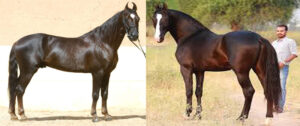
The horse equipment’s we use are all made in India from fine leather of Kanpur. The saddles are known as SAWAR (rider) saddles as they are designed for Cavalry. They are comfortable for horses and safe for the riders.
The Marwari horse used to be the horse of the king and his nobles. Bred for war and show, they still display a remarkable pride and dignity. Their ears are distinctively curved inwards in a lyre-shape, which makes them unique and easily recognizable.
We invite you to meet and ride these very exceptional horses and only then you will be able to understand the culture of Rajasthan, which is so deeply entangle with these animals, wholly. We are an experienced safari operator and our main concern and highest priority is the safety of horse and rider.
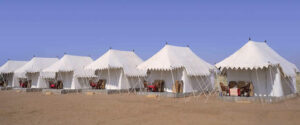
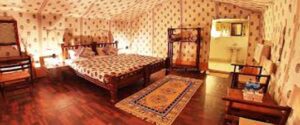
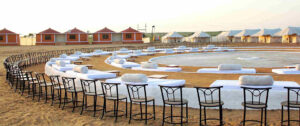
Our aim is to provide our guests with the best quality and most unique equestrian experience possible. Come as a guest and leave as a friend. We personally manage every ride and every safari and cater all special wishes our guests may have. From tailor-made horseback safaris to cozy candlelight dinners, everything is possible. So if you have a special wish, please do not hesitate to ask us.
Our safaris are special for a number of reasons. First and foremost we offer the riders the chance of getting to know rural India with its fantastic country sides, little villages, its great nature and ancient culture, still detectable through scattered monuments such as forts, temples, havelis, etc.
We handle every safari personally so that our riders feel at home. Every detail is taken care of and no wish is left open.
All our safaris are organized as close to nature as possible and are eco-friendly. We use local supplies and groceries and prevent unnecessary waste. Cooking and lighting is done with gas as not to cut done forest wood.
Our safaris provide rural employment as we occupy local people as helpers, guides or artists. We strongly emphasize local culture and try to help preserve it in giving the people a sense of value and pride.
Our horseback safaris lead through the rocky hills of the Aravalli Mountains, geologically one of the oldest mountain ranges in the world, over the fertile plains and the wild savannahs of Western Malwa, with its many forts and strongholds and down into the vast expanse of the Thar Desert stretching out from India into Pakistan.
On our safaris, the guests stay overnight in our tented safari camp in the Indian bush. Every evening we set up our camp at a different location, sometimes next to a little village, sometimes in the loneliness of the Indian landscape.
Each of our camp-site is chosen with the greatest care in order to ensure the safety of the guests and the scenery of the surroundings.
Our safari camp consists of spacious double tents with flooring, proper beds including pillows, sheets and blankets, windows for ventilation and a small pre-tent to leave shoes/boots or to enjoy a morning tea.
Showers and bathroom facilities are provided in our bathroom trolley with running water (hot water is supplied in buckets). Towels, soap and toilet paper are supplied and a wash-basin as well as a mirror attached.
Thus away from civilization our safari camp offers all necessary amenities for the riders to feel comfortable and at ease.
A normal safari day includes between 5 and 6 hours in the saddle plus a lunch break (lunch is either taken as a lunch packet or brought to the riders by our jeep) and several smaller breaks for sightseeing on the way or a tea stop in the little hamlet by the way. Arrival in the next safari camp is as a rule in the late afternoon. The riders are awaited by tea/coffee and some snacks and of course an inviting shower. Depending upon the place, the rest of the afternoon can be used to do some local sightseeing, a trip to the next village, an evening walk through the countryside or simply some relaxing in the camp. After nightfall we usually prepare a campfire and sometimes some village musicians/artists from the local village come to the camp to perform for us. Depending on the locality the riders can thus experience local folk dances, theater, music, puppet shows or a bullock-cart ride, interaction with local village people, a camel ride, horse dance, the participation in an Indian festival or ceremony and many other things.
For a safari to take place, we need a minimum of 2 guests with a maximum of 10 riders, as we feel that we cannot give larger groups the same individual and personal attention as per our standard.
On the ride we send two guides along with the riders so the group can be divided if necessary and individual comfort and safety is ensured.
We organize horseback safaris from September till April, thus avoiding the hot Indian summer and the monsoon with its heavy rain showers.
Horse riding safaris are organized by us all over Rajasthan , some of our most popular routes of the rides are mentioned below:
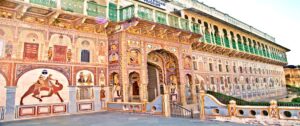
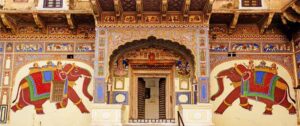
SHEKHAWATI HERITAGE
Dundlod, Mandawa, Mehansar, Alsisar, Nawalgarh, Kochor, Lohargal, Pachar.
NAGAUR FAIR
Bikaner-Gajner, Kakku,Nagaur, Khimsar, Osian

PUSHKAR FAIR
Dundlod, Mandawa, Nawalgarh,Kochor, Pachar, Roopangarh, Pushkar

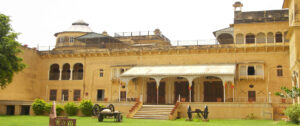
HERITAGE FORT & PALACES
Dundlod, Mandawa, Nawalgarh
Kochor, Roopangarh, Pushkar
Can operate any where in Rajasthan connecting heritage properties.
MARWAR – MEWAR CONQUEST ROUTE
Raipur, Devgarh, Narlai, Kumbhalgarh
BISHNOI FAIR
Bikaner, Mukam,Tal Chapar,Fatehpur, Salasar, Laxmangarh, Dundlod
JODHPUR – UDAIPUR
Khejarla,Chandelao,Sardar Samand,Dhamli,Narlai,Ranakpur, Kumbhalgarh
.
ARAVALI TEMPLE RIDE ;
Khetri, Mansamata , Udaipurwati, Shakambari, Lohargal, Kochor, Jeenmata,
TEMPLE RIDE ;
- Khetri, Mansamata , Udaipurwati, Shakambari, Lohargal, Kochor
Nawalgarh, Dundlod.Alsisar, Jhunjhunu,Sultana,Singhana,Khetri,
Udaipurwati, Gudha, Kumash, Dundlod.* Dundlod, Kumas, Gudha, Mansa Mata, Udaipurwati,
Sakambhari, Logargal, Raghunathgarh, Kochor,
Jeenmata.
BHATNER HORSE SAFARI
Dundlod, Mandawa, Sethani Jodha, Bikasi,
Bilyun, Mahendrapura, Raika ki Dhani, Masitawali
Barrage, Pirkamedia.
